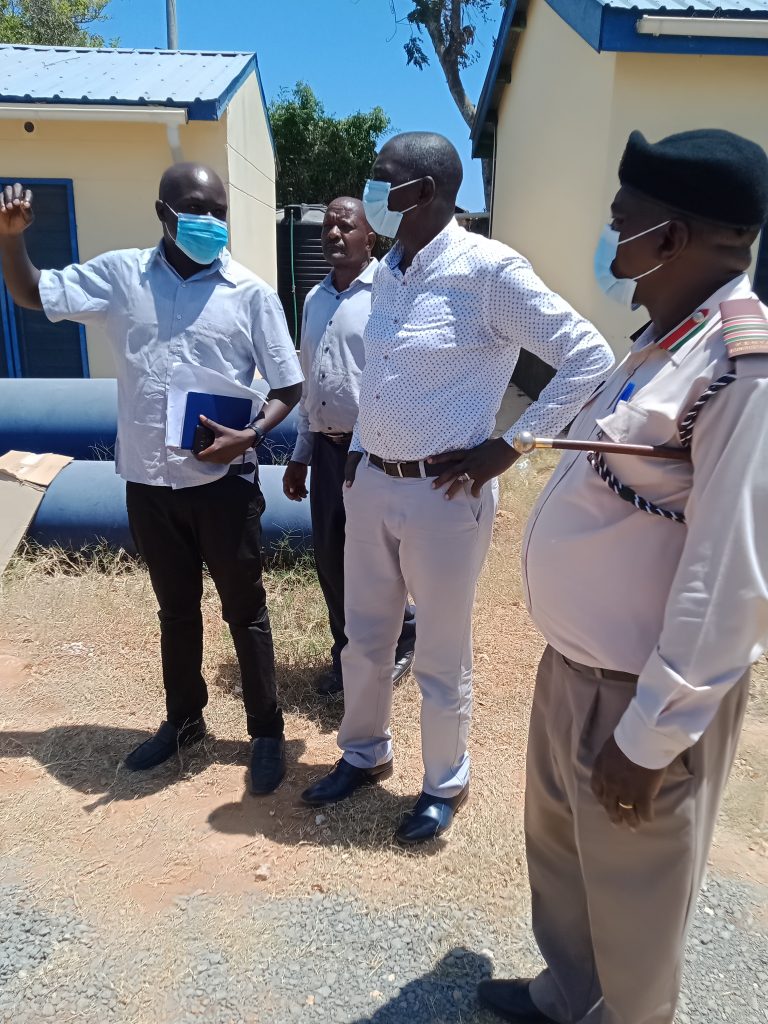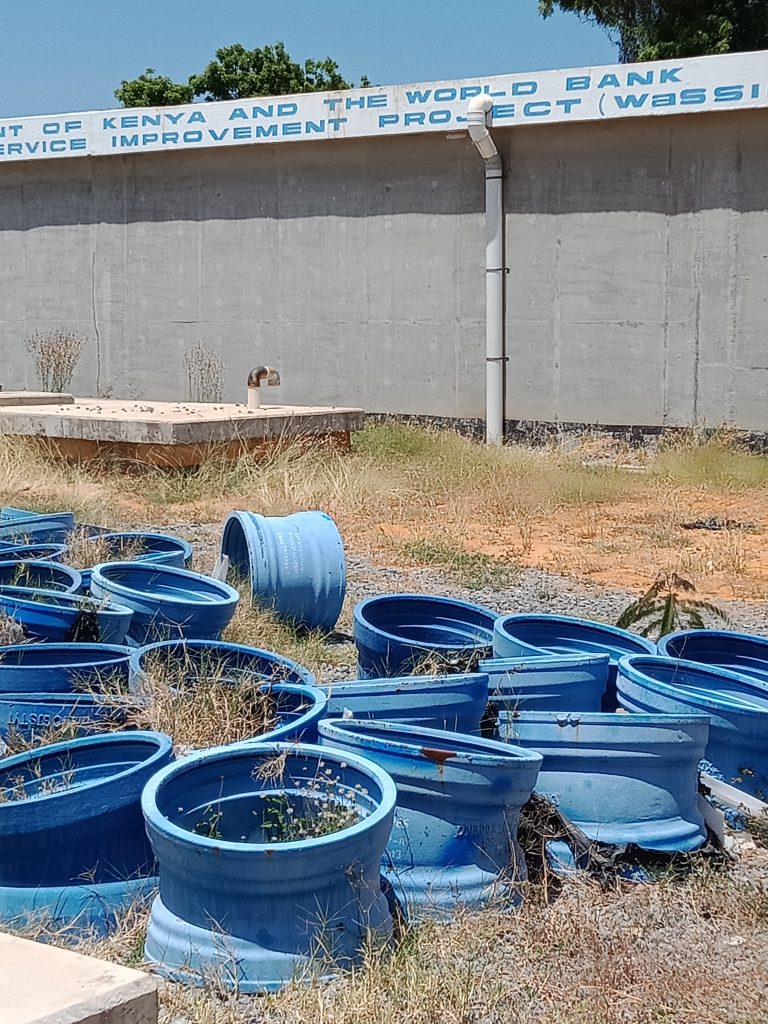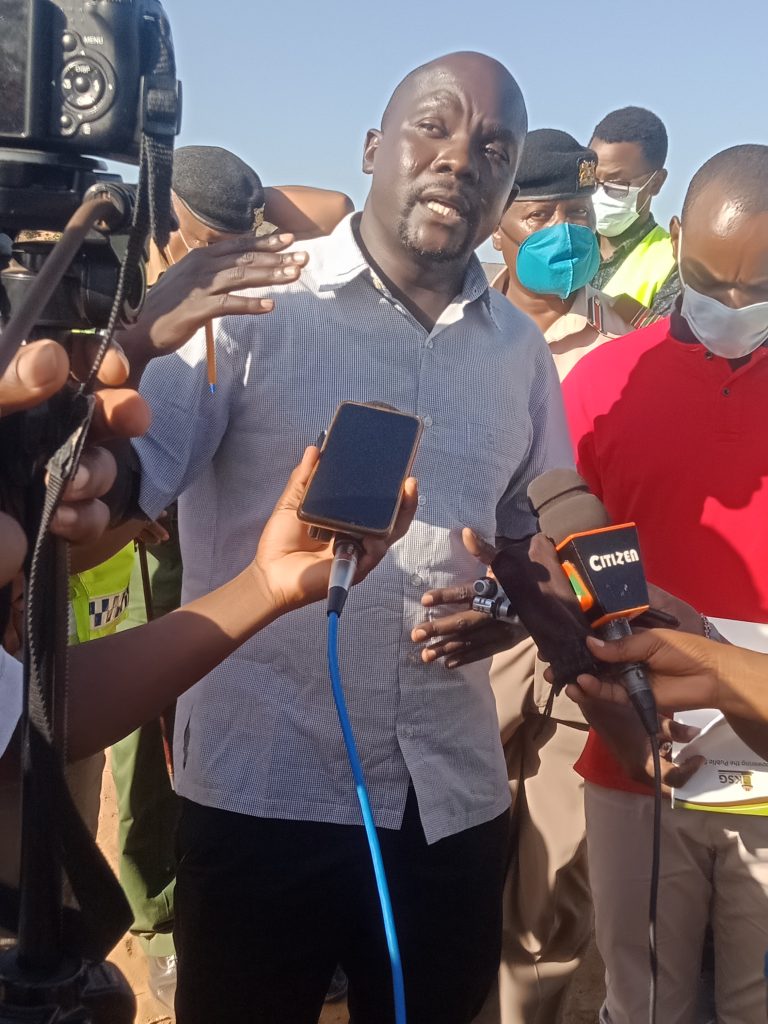World Bank Pumps 4.5 Billion to Water Agency

By The COAST Reporter
Email, thecoastnewspaper@gmail.com
World Bank is set to release 4.5 Billion to the Coast Water Works Development Agency (CWWDA) to militate against the effects of COVID-19.
Negotiations between the Bank and the Water Trust Fund on the release of the funds are on top gear as disclosed by engineer Robert Ojwang, who said the funds would enable to meet financial obligations due to lack of liquidity.

Briefing the government spokesman Col (Rtd) Cyrus Oguna at the Baricho Water Works during an inspection tour, the engineer added the water Agency has accumulated electricity bills that affected effective service deliver in Kilifi and Mombasa Counties.
PAYMENT DISPUTE
For a while now, the CWWDA and Kenya Power Company (KP) have had disputes over millions of shillings of accumulated power bills resulting into to frequent power cuts.
Apart from this long-standing issue, the agency has also been unable to procure chlorine and other chemicals to treat water at the Baricho Water Works in Langobaya division of Malindi Sub County due to lack of finances.
Although the water agency has sold bulk of its waters to suppliers, majority of them have been unable to pay for it alleging their industrial and domestic consumers’ failure to pay their water bills that had accrued to millions of shillings.
“Frequent power disconnections at the Baricho Plant have caused us to split the monthly bills to the water service providers to settle them directly, but these providers have also been unable to pay Kenya Power Company (KP) in time necessitating frequent pumping services,” he said.
This chain reaction trickled to the consumers who fail to meet their payment obligations of water supplied to them by the county water providers.
According to him during the pandemic the government directed water service providers to continue supplying water to their customers irrespective of whether they had settled their water bills or not.

This adversely affected the companies financially and they were also unable to pay the agency for the bulk water sold to them.
Baricho Water Works supplies water to the Malindi Water and Sewerage Company (Mawasco), Mombasa Water and Sewerage Company (Mowasco) and the Kilifi/Mariakani Water and Sewerage Company (Kimawasco), which in turn distribute to their respective consumers both industrial and domestic.
ALTERNATIVE ENERGY
Mr. Ojwang said his agency was exploring the possibilities of using alternative sources of energy, preferably solar power, to run the Baricho Water Works with a view to tackling the problem of high electricity bills that have let to frequent disconnection of electricity at the vital facility.
“Our biggest challenge has been paying the electricity bills which amount to about Sh40 million per month and that is why we are exploring other alternative sources of energy,” he said.

The engineer said the water agency was currently implementing a Sh400 million project to repair three boreholes at the Baricho Water Works (BWW) which were destroyed by floods in 2018, thus reducing water supply by about 25 million litres per day.
Mr. Ojwang said that the project was 90 percent complete and is expected to be complete by March this year, thus increasing the water supply from the current 90 million litres per day to 115 million litres a day.
However, he lamented that about half of the water pumped from the BWW to the WSPs was unaccounted for due to illegal connections and leakages caused by the old water system.
Col. (rtd) Oguna said the government was committed to ensuring that residents of the Coast region got safe water for domestic use adding the completion of the Mwache Dam project in Kwale County would ease water supply and end frequent shortages.

